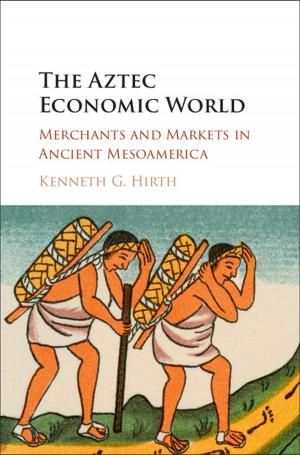A Critique of Archaeological Reason
Structural, Digital, and Philosophical Aspects of the Excavated Record
Nonfiction, Social & Cultural Studies, Social Science, Archaeology, History| Author: | Giorgio Buccellati | ISBN: | 9781108165075 |
| Publisher: | Cambridge University Press | Publication: | April 24, 2017 |
| Imprint: | Cambridge University Press | Language: | English |
| Author: | Giorgio Buccellati |
| ISBN: | 9781108165075 |
| Publisher: | Cambridge University Press |
| Publication: | April 24, 2017 |
| Imprint: | Cambridge University Press |
| Language: | English |
In A Critique of Archaeological Reason, Giorgio Buccellati presents a theory of excavation that aims at clarifying the nature of archaeology and its impact on contemporary thought. Integrating epistemological issues with methods of data collection and the role and impact of digital technology on archaeological work, the book explores digital data in order to comprehend its role in shaping meaning and understanding in archaeological excavation. The ability of archaeologists to record in the field, rather than offsite, has fundamentally changed the methods of observation, conceptualization, and interpretation of deposits. Focusing on the role of stratigraphy as the center of archaeological field work, Giorgio Buccellati examines the challenges of interpreting a 'broken tradition'; a civilization for which there are no living carriers today. He uses the site of Urkesh in Syria, where he has worked for decades, as a case study to demonstrate his theory.
In A Critique of Archaeological Reason, Giorgio Buccellati presents a theory of excavation that aims at clarifying the nature of archaeology and its impact on contemporary thought. Integrating epistemological issues with methods of data collection and the role and impact of digital technology on archaeological work, the book explores digital data in order to comprehend its role in shaping meaning and understanding in archaeological excavation. The ability of archaeologists to record in the field, rather than offsite, has fundamentally changed the methods of observation, conceptualization, and interpretation of deposits. Focusing on the role of stratigraphy as the center of archaeological field work, Giorgio Buccellati examines the challenges of interpreting a 'broken tradition'; a civilization for which there are no living carriers today. He uses the site of Urkesh in Syria, where he has worked for decades, as a case study to demonstrate his theory.















